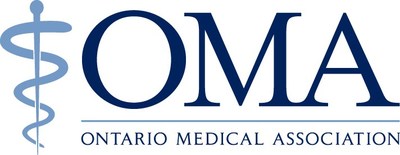New survey finds Ontarians feel health-care recovery is the first step to economic recovery
TORONTO, Jan. 19, 2022 /CNW/ - Ontarians want the government to prioritize clearing the backlog of health-care services built up during the pandemic, even if it means a short-term impact on economic recovery, according to a new survey conducted for the Ontario Medical Association.

When asked to identify the issue that was most important to them, 40 per cent of Ontarians surveyed by Ipsos chose addressing COVID-19, followed by 10 per cent who said access to health care/long wait times/understaffed hospitals. Seven per cent said economic growth should be the government priority.
Younger Ontarians (ages 18-39) expressed more interest in mental health issues, suggesting a significant and growing generational divide. Housing affordability and climate change have risen greatly as priorities for Ontarians over the past eight months.
An overwhelming 96 per cent of respondents said they supported the five pillars of the OMA's Prescription for Ontario, a five-point plan for improving our health-care system. Reducing the backlog of 20 million health-care services is the top priority of that plan, which the OMA hopes all political parties will adopt.
The survey of 1,000 Ontarians was conducted in December before the Omicron variant swept through the province and the government paused non-emergency surgeries and procedures.
"Ontarians are sending a clear message that we have to have a strong health-care system if we want to have a healthy economy, and Ontario doctors agree" said OMA President Dr. Adam Kassam. "This will require collaboration among the public, health-care providers and all levels of government, including a significant investment from the federal government through the Canada Health Transfer to the provinces to cover 35 per cent of all health-care costs, up from the current 22 per cent."
When asked to choose which was a higher priority to them, Ontarians most often chose the backlog in surgeries – 51 per cent of the time, followed by improving and expanding long-term care facilities for seniors, which was chosen 47 per cent of the time. Both of these were chosen more often than stimulating economic growth, which was chosen 39 per cent of the time.
The survey also found that one in 10 Ontarians have not been vaccinated against COVID or have received only one dose. Seven per cent said they did not plan to get vaccinated. They are more likely to be millennials (people born between 1981 and 1996) or Gen X women (born between 1965 and 1980).
Twenty-four per cent of survey respondents who are not vaccinated or do not plan to be vaccinated – almost one in four – said they were afraid of side effects, with the same proportion saying they did not trust information coming from government. Others said they had made a personal choice to wait, don't believe the vaccine is effective, dislike needles, have medical reasons, or were not sufficiently concerned about getting COVID-19 to get their shots.
"This survey shows that Ontarians are deeply concerned about the pandemic backlog and other cracks in our health-care system," said OMA CEO Allan O'Dette. "It shows they are aligned with a plan by Ontario's doctors, Prescription for Ontario: Doctors' 5-Point Plan for Better Health Care, that can be adopted by government to address these issues and build a strong health-care system for the future. This plan was the result of the broadest consultation in the OMA's history, including outreach to the public, stakeholders and our members."
The Ipsos survey was conducted online between Dec. 7-13, 2021. The representative sample of 1,000 Ontario residents aged 18 and older is considered accurate to within 3.5 percentage points, 19 times out of 20.
The OMA has additional resources about the backlog of health-care services, health-care funding and the Canada Health Transfer.
About the OMA
The Ontario Medical Association represents Ontario's 43,000-plus physicians, medical students and retired physicians, advocating for and supporting doctors while strengthening the leadership role of doctors in caring for patients. Our vision is to be the trusted voice in transforming Ontario's health-care system.
SOURCE Ontario Medical Association
